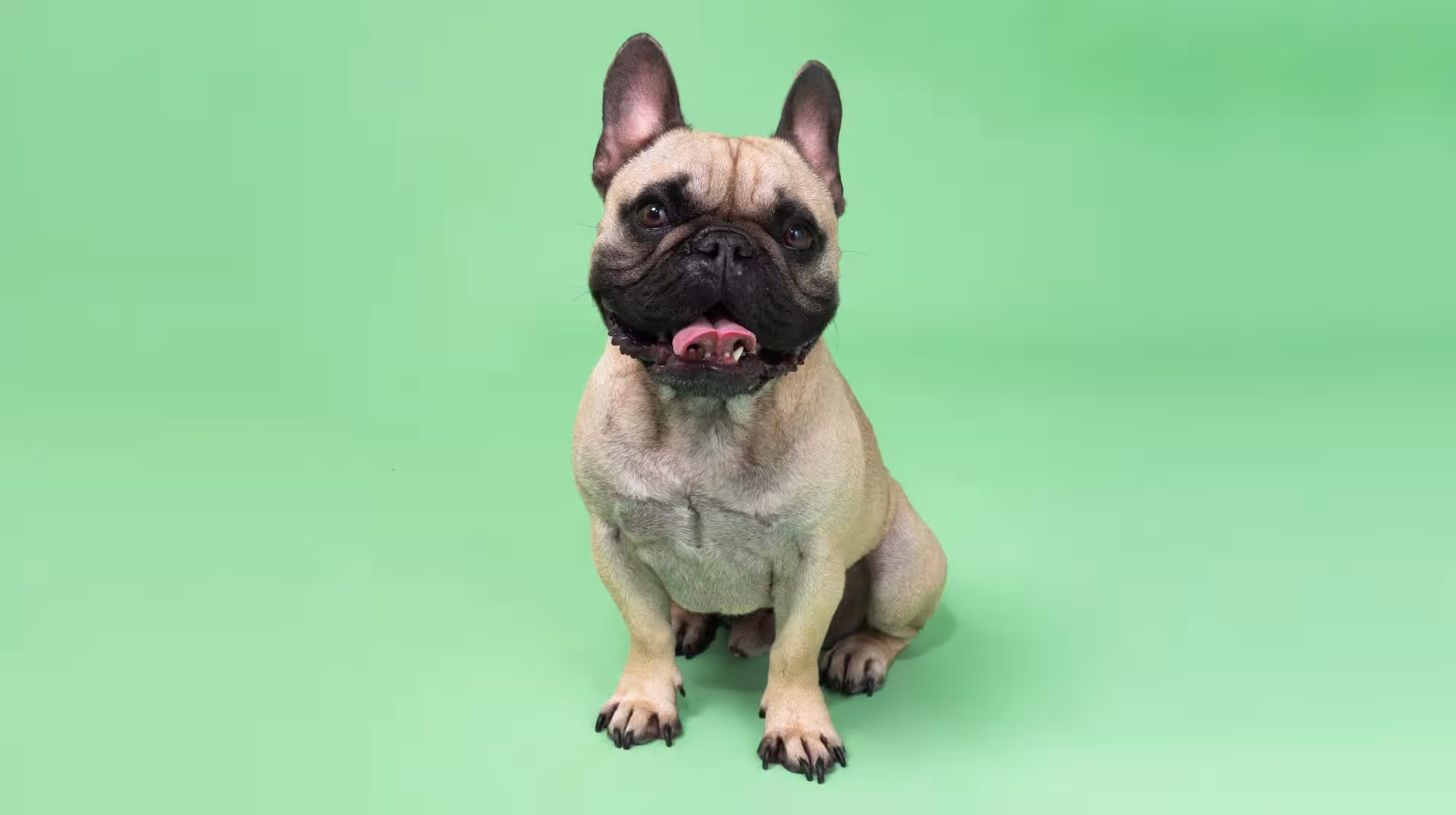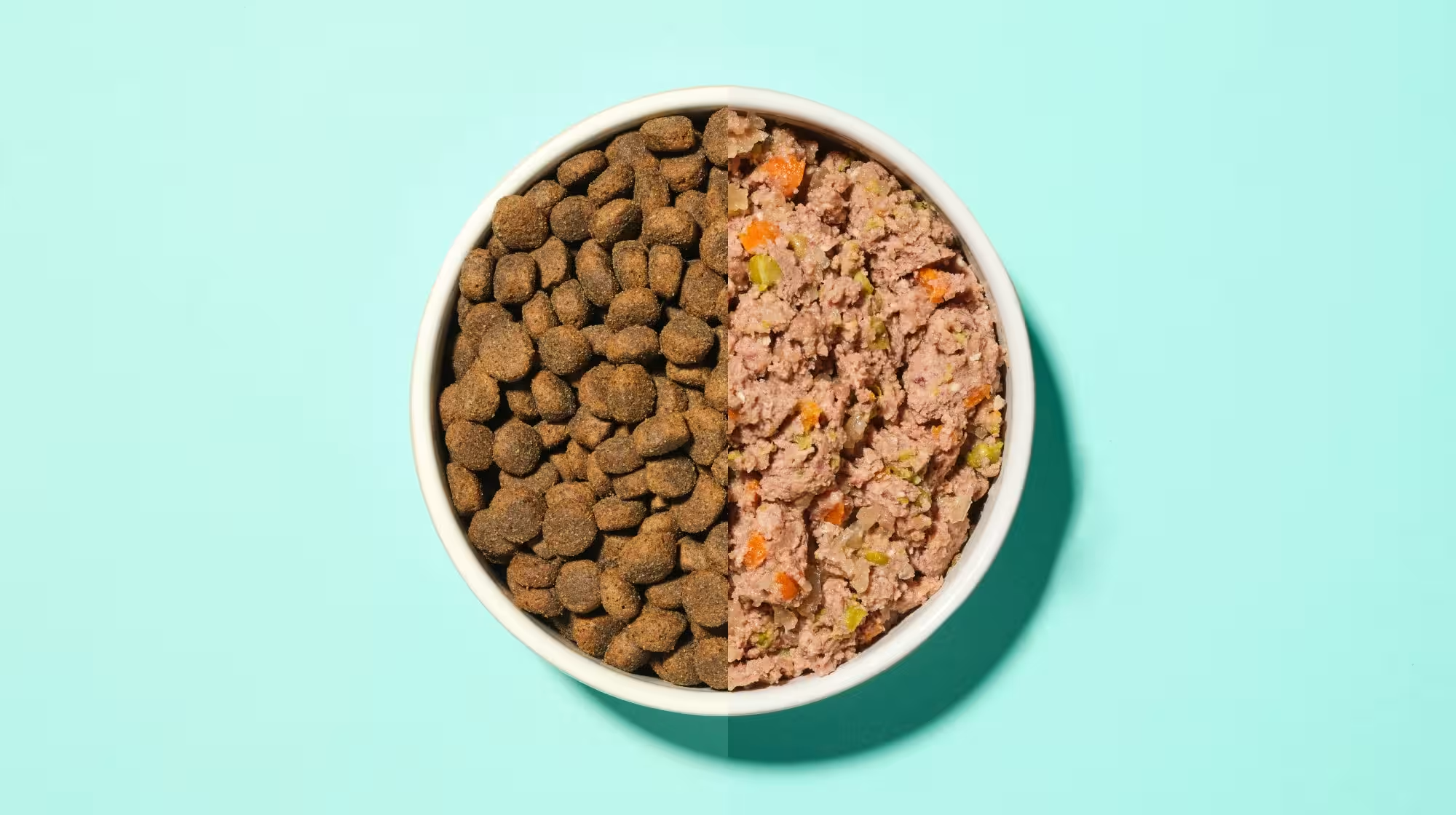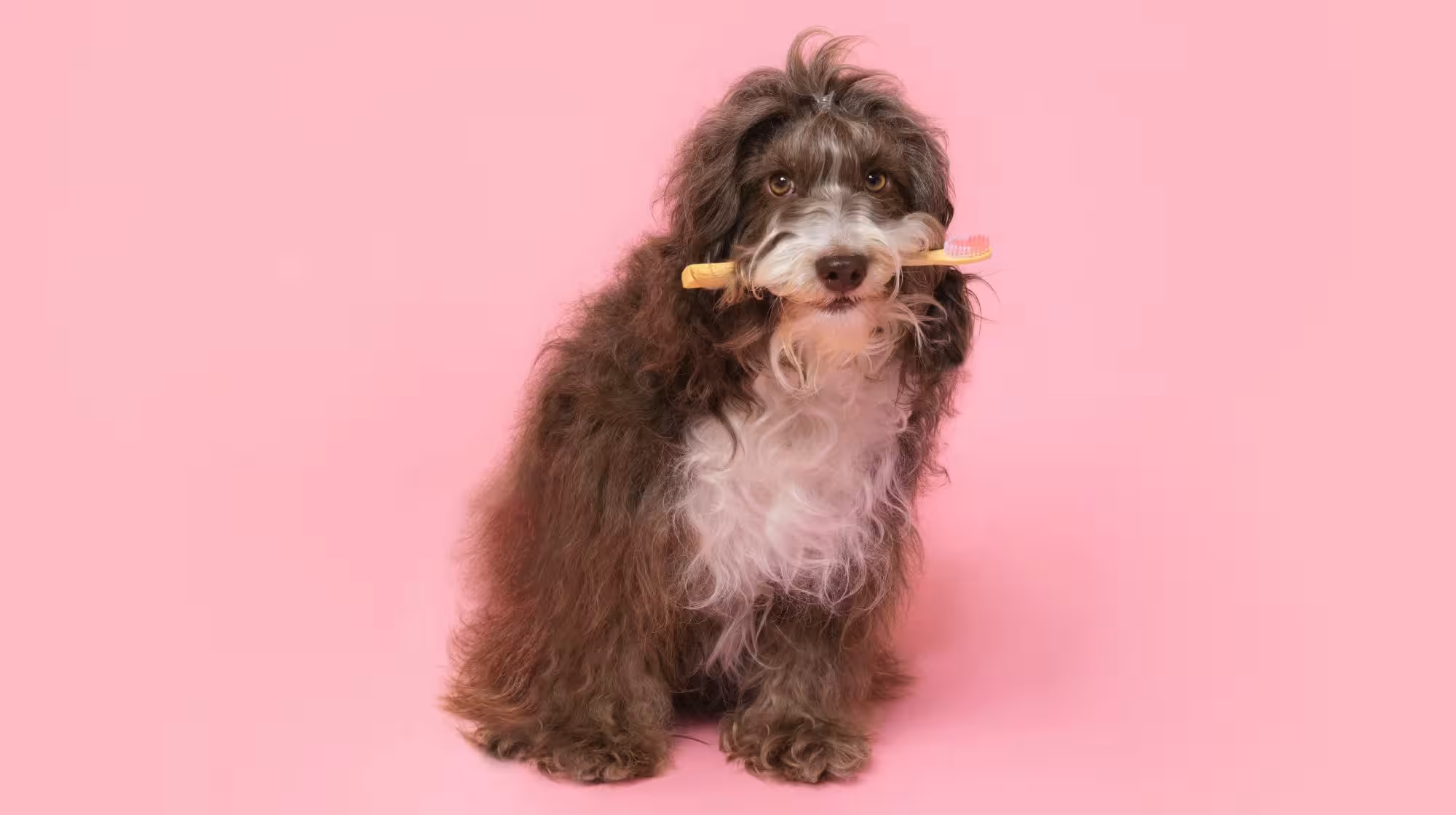When was the last time you thought about the canines on your canine? For some pooch parents, their dog’s gnashers may be just one thing on a long list of dog health check-ups; after skin, coat, ears, eyes, mobility and all-round energy levels. When dogs do have dental problems, such as tooth loss, however, it can send their owners into a tailspin. What do you feed a dog with bad teeth, how do you prevent more damage, and will they be able to eat and chew comfortably?
Read on to learn about what to feed a pooch with tooth loss or dental issues, and understand more about what causes bad teeth in dogs.
What causes bad teeth in dogs?
When a dog is just a puppy, it’s normal for them to lose their milk teeth and grow adult molars. When tooth loss or damage occurs later in life, however, it can be more of a cause for concern. Tooth loss is known as periodontal disease, and though it’s not ideal, it’s actually very common in dogs over the age of four.
Much as with humans, there’s lots of reasons a dog might suffer from worse teeth than the next dog. The most obvious cause is likely to be a lack of dental hygiene, but dental issues can also crop up after an injury such as a knock to the face, or because your pooch is getting old (!) and their teeth simply aren’t what they used to be.
Certain breeds of dogs are also unlucky as they’re predisposed to dental problems, such as Spaniel breeds, small dogs like Chihuahuas, or flat-faced breeds such as Shih Tzus or French Bulldogs.

What to feed a dog with bad, missing or no teeth
If your pooch has a mouthful of dental difficulties, don’t panic – you can rest assured that not a lot will come between a dog and his meals, no matter how gummy their grin. To make it easier for them, though, try adapting their food in the following ways:
Wet dog food
If your dog is usually a dry food guy or gal, perhaps it’s time to switch to the wet stuff. Nutritious wet dog food has a gentle texture and is softer to chew, plus its stronger scent and flavour can draw a nervous pup back to the bowl if their hunger hasn’t been the same lately.
Pureed wet food
If regular wet food is still a bit chunky for your dog’s chops, try softening it further by mashing it up thoroughly with a fork, or even blitzing it briefly in a food processor/blender.
Pureed home-cooked food
If you feed your dog the occasional human meal such as chicken, sweet potato or veggies, be sure to boil until soft and puree that in a blender, too.
Crushed dry dog food
You might want to stick with dry food and that’s fair enough - dry food for dogs is packed with nutrients, and is generally more economical and less messy. Try crushing some of your dog’s regular kibble, either by sealing it in a ziplock bag and bashing gently with a meat hammer or rolling pin, or - you guessed it - blitzing it up in your new best friend, the blender.
Softened dry dog food
Another route to tenderise your dry dog food is to add some hot (not scolding) water, or maybe unsalted chicken broth. This should make the dry pieces softer and much easier to chew. It will also appear juicier to your pooch as all the meaty flavours and smells come out.

Add a topper
If your pooch isn’t into their dry food even if it’s crushed or softened, try a tasty topper to bribe them, such as a drizzle of flavoured yoghurt for dogs or some low-sodium gravy. Be sure there’s no extras in the gravy like onions or fat.


Dental Powder For Dogs
A complementary dental powder for dogs, made from 100% Dried Sea Kelp to clean teeth, keep gums healthy, and freshen bad breath.
-
Protects teeth & gums
-
Puppy-friendly
-
100% Sea Kelp
Current price: £15.99
Dental Powder For Dogs
Is wet dog food bad for dogs’ teeth?
Wet dog food isn’t bad for dogs’ teeth; so long as you’re helping your dog keep good dental hygiene with regular brushing and dental chew treats.
The reason wet dog food isn’t necessarily linked to good dental health is because there is some evidence that dogs on a dry food diet tend to have better teeth. This is potentially because the crunchy nature of kibble pieces may have somewhat of a ‘brushing’ effect on dog’s teeth - though this isn’t 100% proven and shouldn’t be seen as a replacement for appropriate dental care for dogs.

How to keep your dog’s teeth clean
When your dog has ‘bad’, missing or no teeth, whatever the reason, it’s important to look after the gums, mouth and remaining teeth to ensure your gap-toothed pooch is kept comfortable and pain-free. Looking after them in this way could also prevent or delay further dental deterioration.
Brushing your dog’s teeth
Many pooch parents will testify that dogs aren’t the biggest fans of having their teeth brushed, but it’s definitely the most effective way to keep your dog’s pegs clean and fresh. Daily brushing with a toothbrush and toothpaste for dogs will keep plaque at bay and reduce gum disease as well as that infamous dodgy dog breath. After a few practice times, your dog should know what to expect during teeth-brushing and not squirm too much.
Dog dental sticks
Another convenient way to clean your dog’s teeth is a daily dental stick for dogs . As your pooch spends time chewing on the stick, they are simultaneously releasing ingredients for cleanliness and fresh breath (such as mint and spirulina ) while scrubbing plaque and tartar from the surface of their teeth.
Dental Sticks
A dental stick a day keeps the pooch dentist at bay! And for a little extra protection, take a look at our dental care collection .
-

 from
fromCurrent price: £11.49
Dental Stick Bundle For Dogs -

 from
fromCurrent price: £3.99
Calming Dental Sticks For Dogs -

 from
fromCurrent price: £3.99
Peanut Butter Dental Sticks For Dogs -

 from
fromCurrent price: £3.99
Spirulina & Mint Dental Sticks For Dogs -

 from
fromCurrent price: £3.99
Cheddar Cheese Dental Sticks For Dogs
Dog chews and toys
Chewing in general is a good exercise for dog dental health as it strengthens dog teeth - however many they may have left. Dispense a tasty chew to your dog now and then, or get some gummy toys for them to munch on.
FAQs
How many teeth do dogs need to eat?
Adult dogs with a full set will have 42 teeth, while puppies have 28. Though losing a tooth shouldn’t impact your dog’s eating habits too much, it’s very important to take your pooch to a vet in case they’re showing signs of losing more. The canine teeth (the fang-looking ones) are key to gripping and tearing food, so if your dog loses one of those, you might notice a change in how they chew.
In general, dogs can eat fine with missing teeth, and even with no teeth, so long as their owner adapts their food accordingly - but of course the fewer teeth they lose, the better.
Do dogs need all their teeth?
Though the ideal scenario would be for a dog to keep all of their 42 teeth, it’s not strictly necessary. One or two missing teeth is no biggie, but the more teeth they lose, the more trouble they will have eating. At a severe stage where a dog has few to no teeth, it can start to reform the structure of their mouth, and their tongue may protrude out. When it gets to this stage, pureed food is preferable so they can easily lap up their dinner without struggle.
Is it normal for senior dogs to lose teeth?
Just like humans, dogs’ teeth get old, but not all old boys and girls will lose their teeth. If you’ve not switched to a food for senior dogs already, this is a good time to ensure they’re getting all the easily digestible nutrition their golden era requires. If you are noticing your senior dog is losing their teeth, however, and they haven’t experienced any injury or head trauma, it could be an indicator of periodontal disease.
Be sure to visit a vet to be fully informed on the next steps. The aim is always to keep your dog healthy and comfortable, without any pain, and to reduce the chance of more teeth falling out as much as possible.




